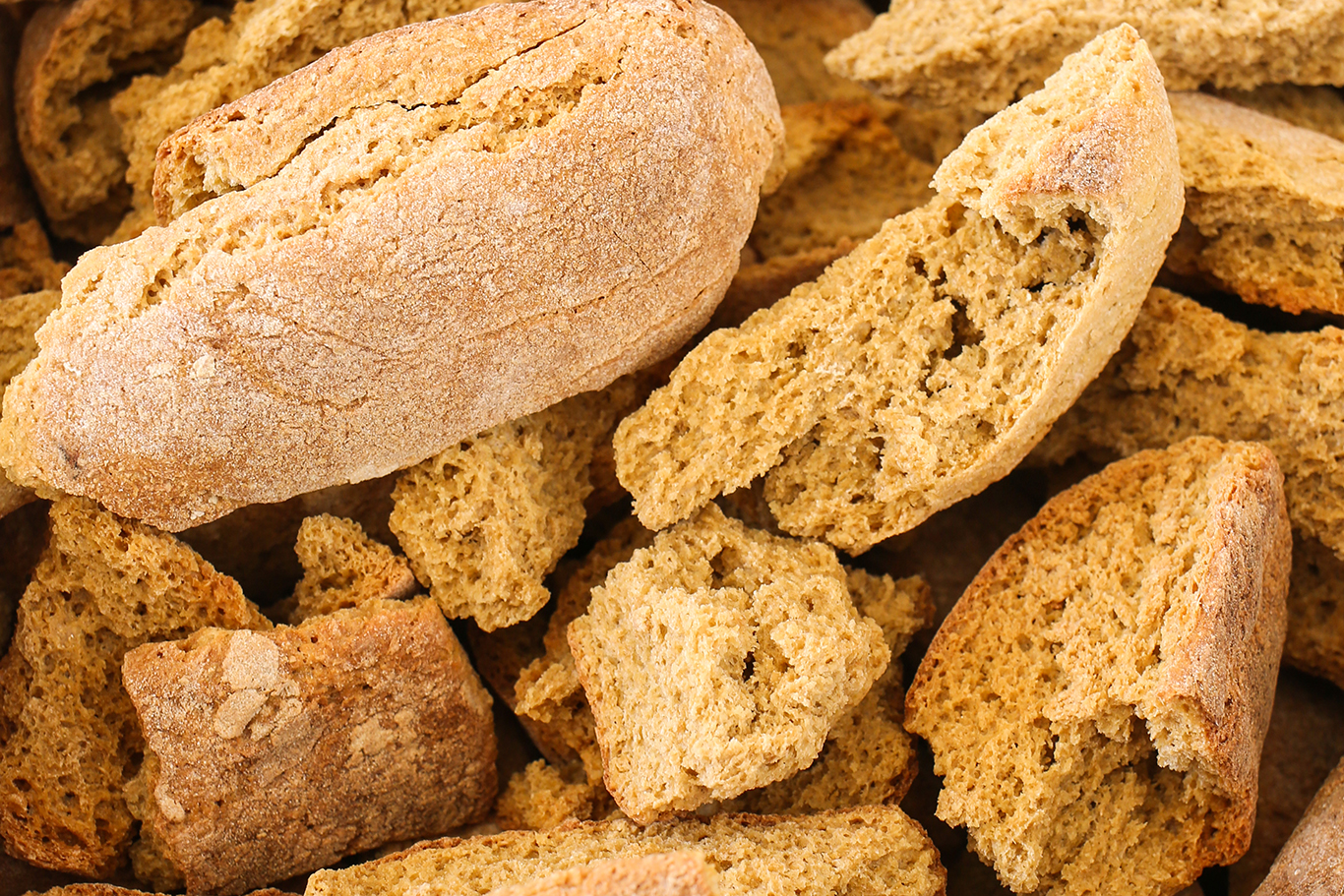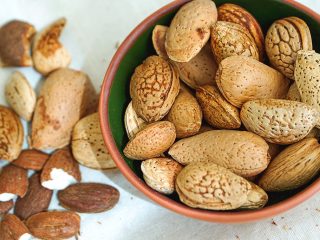By Chris Drum Berkaya
Peksimet are dry, twice-baked slices of bread stored in sacks, which you’ll find every week at the Bodrum markets, baked by just a handful of women. A rough translation to “rusks” or “hardtack” doesn’t do justice to the fragrant, earthy pieces of hand-milled bread, often eaten at breakfast dipped in water, tea or coffee and paired with salty cheeses and olives.
Born of the past, when frugal and harsh lives meant people in many regions needed peksimet to get them through long periods of deprivation, the humble staple nevertheless holds a compelling place in Bodrum history.
Bodrum-born restaurant owner and local foods researcher Orhan Dumanlı tapped into his elders’ memories and found that trade in peksimet was important for the once-isolated Bodrum up until the 1980s. Coastal seafarers often visited and traded flour for the fortifying fare. Famed Bodrum sponge-divers, who traveled up to six months across long distances hunting natural seabed sponges, regularly packed up to 200 kilograms of peksimet per boat in their dried food stores – lending it the name “Bodrum boatman’s peksimet.” There is even a Peksimet village behind Gümüşlük, named after bread that earlier generations baked and traded during and after the First World War.
Today, Bodrum locals always make sure to have the old-time staple around the house. While the days of necessity are, for many, a memory, most simply love the special flavor of this healthy, hand-milled grain bread.
It was traditionally women who baked peksimet, and a few continue to do so today. Hamide Yalçın has a stall in the small weekly market of Kızılağaç Village, where she sells dried beans, lentils and figs, in addition to her special bread. She offers two varieties; hand-milled oaten-wheat mix and all-wheat. Periodically, she will also use barley or millet, though chickpea flour was also once used as it help the bread stay dry.
Hamide learned the peksimet art from her mother-in-law, Fatma Yalçın, more than 20 years ago. Today she continues the 40-year family tradition. In addition to the Kızılağaç market on Sundays, you can find Hamide at the Bodrum Artisan Producers market on Wednesdays, and among ten other peksimet bakers at the weekly Friday Bodrum food market.
On remaining days of the week, she can be found baking at home with the help of her husband Mehmet. She prepares the dough, allows it to rise, then bakes the long, flat loaves in her outdoor wood fired oven. After allowing the bread to cool for an hour, she slices the loaves into pieces then returns them to the cooling oven for a slow seven- to 12-hour bake which will yield the final, dry twice-baked bread, not unlike European biscotti (which in fact means “twice baked bread.”)
How long does peksimet keep? Hamide allows ten days, but believes it could keep for up to a year in an airtight container. It keeps so well that she can send orders by cargo to her regular customers in Istanbul and Ankara, who crave it for breakfast.

Orhan Dumanlı advises to first dip the crust of bread into room temperature water (or seawater to be truly authentic) and allow it to absorb moisture for two minutes. It then has the crumbly consistency of wholemeal bread, and a subtle flavor that speaks to the hot summer sun and clean air of harvest season.
That special flavor has traveled a long way. In 2013 Orhan Dumanli, as a member of the Bodrum Slow Food Convivium, identified and nominated peksimet as one of the traditional regional foods of Turkey. Members took 20 kilograms of Hamide’s acclaimed peksimet with other samples to the biennial Terra Madre Salone Del Gusto gathering of Slow Food Convivia in Turin, where it was accepted in 2014 as a food to be preserved in the Ark of Taste. It is a far journey from a village oven to the international tables of Turin, but the value of Bodrum peksimet is once again appreciated far and wide.
Peksimet salad by Orhan Dumanlı
Break pieces of peksimet in a bowl and grate enough tomato to cover. Then, place diced cucumber and lettuce on top. Wait 15-20 minutes for the pesimet to absorb the juice of the grated tomato. Prepare a mixture of olive oil, balsamic vinegar (or pomegranate juice) and mustard. Mix in capers, then pour over the peksimet and salad and toss. Add fat-free white cheese just before serving. Bon appetit!











